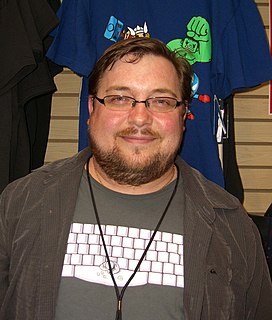A Quote by Jose Antonio Vargas
Facebook's privacy policies are confusing to many people, and the company has changed them frequently, almost always allowing more information to be exposed in more ways.
Related Quotes
So while it is true that children are exposed to more information and a greater variety of experiences than were children of the past, it does not follow that they automatically become more sophisticated. We always know much more than we understand, and with the torrent of information to which young people are exposed, the gap between knowing and understanding, between experience and learning, has become even greater than it was in the past.
At Facebook, we're inspired by technologies that have revolutionized how people spread and consume information. We often talk about inventions like the printing press and the television - by simply making communication more efficient, they led to a complete transformation of many important parts of society. They gave more people a voice. They encouraged progress. They changed the way society was organized. They brought us closer together.
Many more children observe attitudes, values and ways different from or in conflict with those of their families, social networks,and institutions. Yet today's young people are no more mature or capable of handling the increased conflicting and often stimulating information they receive than were young people of the past, who received the information and had more adult control of and advice about the information they did receive.
Allowing short selling is allowing people to sell - instead of having to buy the stock and then sell it, which doesn't do much; allow them to sell it, and then buy it. In which case they can express that information and the idea is that you would get more accurate valuation of companies by letting people express both their positive information and their negative information through either long or short selling.
But obviously, things have changed in many ways since the '50s, when the show is started, in terms of sexuality, and how much access we have to images of it and information about it. But, the same problems always apply. It doesn't matter whether we know a lot more about sex now or if there's a lot more access to it. The same problems of intimacy, of dealing with other people, of connecting and being vulnerable with other people, which is what the show is ultimately about, still applies now, I think.
I think movies in general should have more respect for the audience than they do. Too many films are afraid to confuse people, so all the information is given to them right away, and there's nothing left for the film to do. It ruins many stories, because everything becomes obvious and predictable. I want my films to engage people more and make them more actively involved in the story.
I can't deny the impact of, obviously, becoming a father and having my son come into this world, and even becoming a husband. The irony is that, when people think that in certain ways it softens you, in many ways, I'm more defensive and more on guard and more frightened and more angry at everything in this world now that I have them to worry about.
If you share information widely, but you present that information in ways that fits your own view, you're actually still misrepresenting. So instead what you should do is figure out ways to build systems that allow people to experience and classify their information in ways that are meaningful for them.
At Facebook we feel a lot of affinity not just for this community but for any community that is trying to do what Davos is trying to do, which is to share information. And Davos is doing it in a particular way - I think the Facebook approach is obviously more broad-based, we're trying to include everyone in the world. But the goal is the same: bring people together, to share information and make the world more connected, and have people have a deeper understanding of themselves, others, the communities of which they want to be a part and can be a part.
Whether it's Facebook or Google or the other companies, that basic principle that users should be able to see and control information about them that they themselves have revealed to the companies is not baked into how the companies work. But it's bigger than privacy. Privacy is about what you're willing to reveal about yourself.

































